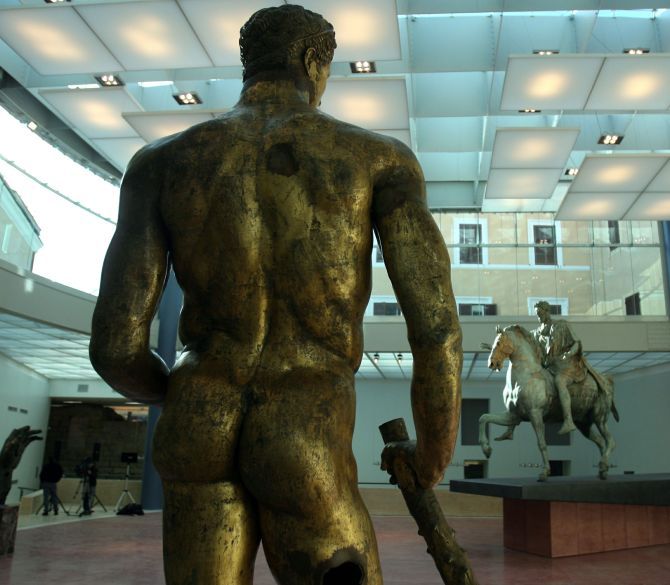The Romans have censored themselves to make visiting Iranian President Hassan Rouhani feel more comfortable during his historic stop in Italy.

Italian Prime Minister Matteo Renzi came under fire after ancient nude statues in Rome’s Capitoline museum were covered up to avoid any possible offense to Iranian President Hassan Rouhani who is visiting the country.
Rouhani -- the first Iranian leader to visit Europe in almost 20 years -- met with Pope Francis at the Vatican on Tuesday, but another stop on his agenda was the famed CapitolineMuseum, where classic Italian nude sculptures were covered with plain white boards to avoid offending the Muslim president.
Italian news agency ANSA said the nudes were covered out of respect for Rouhani.
However, the move wasn’t going over well with many lambasting it as “absurd,” and “embarrassing, servile behaviour.”
Federico Mollicone of Silvio Berlusconi’s Forza Italia party said: “It dishonours centuries of our history. An embarrassment that affirms the inferiority of the west versus Islam.”
Barbara Saltamartini, of the Northern League party, said: “Whoever comes in our country, and this goes for an Iranian president as well, must accept our values and identity which must be defended not hidden.”
The 41-year-old Renzi met with similar criticism last year when he covered up nude pictures in the renaissance town hall of Florence, the city where he used to be mayor, on the occasion of a visit by the crown prince of the United Arab Emirates.
It is standard practice, both in Europe and the United States, for hosting governments to keep alcohol off the menu when Muslim dignitaries visit, as Islam forbids its consumption.
Image: A gilded bronze Greek statue of Hercules dated 300 BC, and equestrian statue of Marcus Aurelius, dating to the Roman emperor’s reign, appear in the new hall at the Capitoline museum in Rome. Photograph: Chris Helgren/Reuters











 © 2025
© 2025